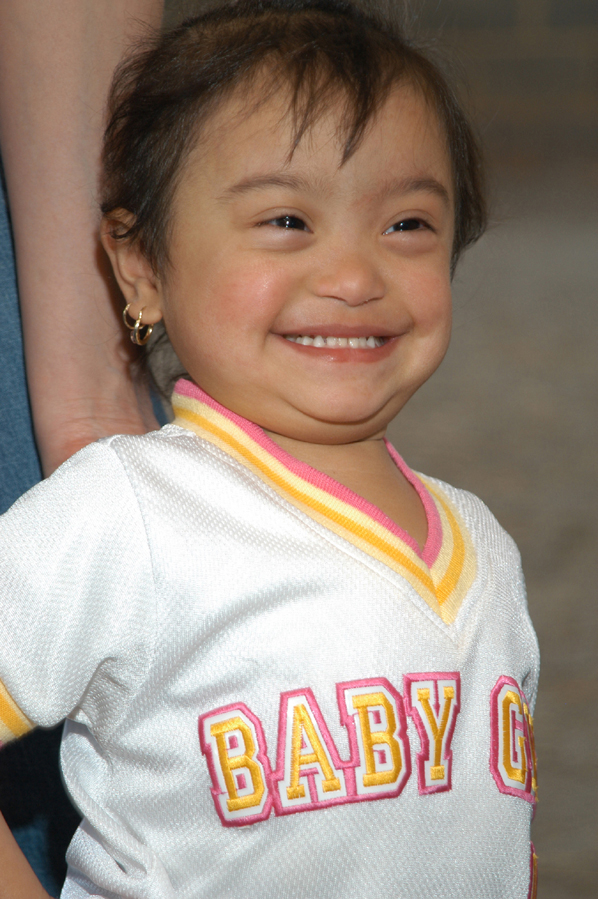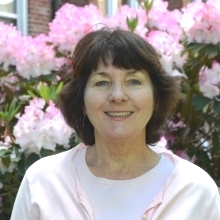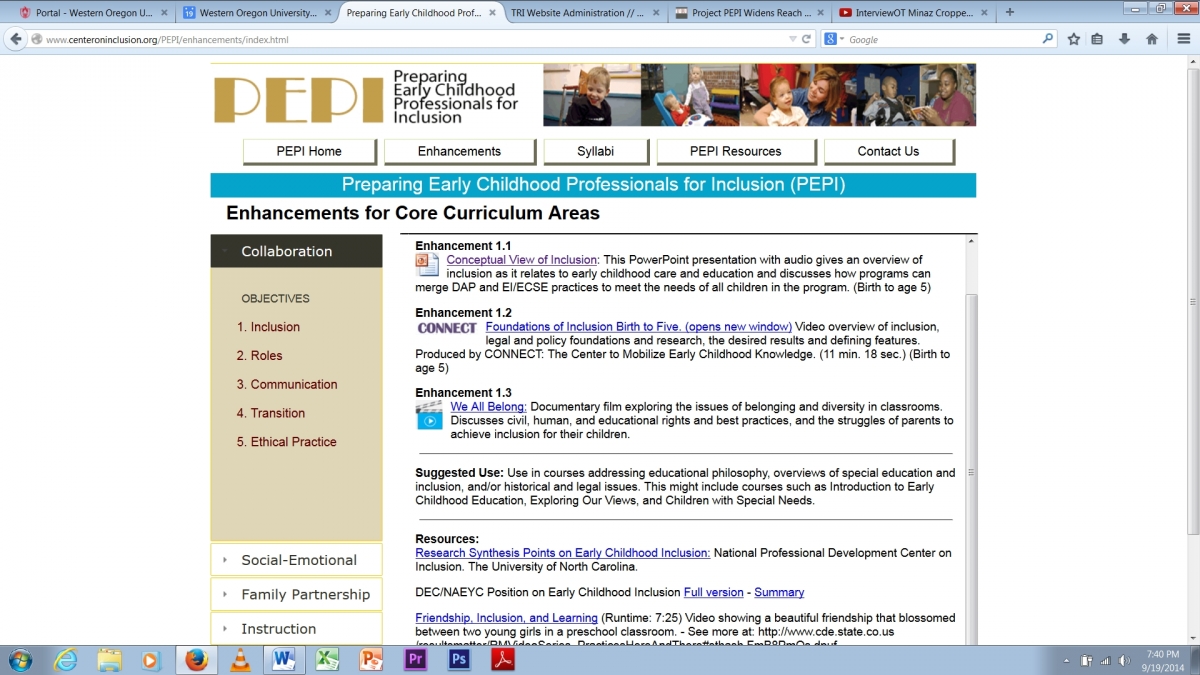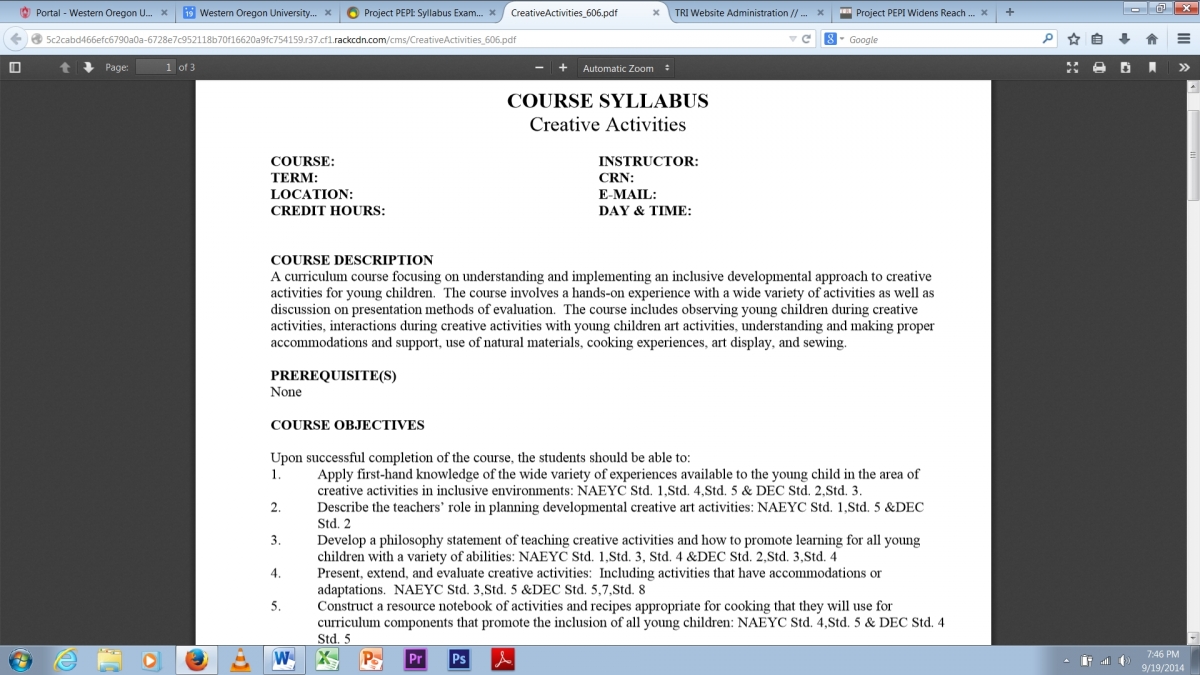Project PEPI Widens Reach of Inclusion in Oregon's Early Childhood Education
Posted on September 19, 2014
0 comments 4003 Views
Project PEPI (Preparing Early Childhood Educators for Inclusion) is designed to fill in the gaps that currently exist in Early Childhood Education curriculum in Oregon’s community colleges to support the inclusion of children with disabilities and those from culturally diverse backgrounds. After a successful roll-out of a pilot program within four Oregon community colleges, the Office of Special Education Programs (OSEP – a division of the US Department of Education) decided to expand the program and has increased funding to Project PEPI by $90,000.00 for the 2014-15 academic year. This increase is allowing the project to add three additional community colleges, nearly doubling its reach.
Project PEPI has been a
collaborative effort between TRI, the College of Education at Western Oregon University, and four
Oregon community colleges: Southwestern Oregon, Chemeketa, Portland, and Blue Mountain Community
Colleges. The additional community colleges that will be added beginning the 2014-15
school year are Clackamas, Lane, and Linn-Benton.

The “enhancements,” as they are called, are just that – they enhance existing curriculum. The PEPI staff at TRI/CEPE spent the first two years of the project studying what already exists, identified the holes, and then searched for, or created, videos, PowerPoint ™ presentations, articles, manuals, and other supporting materials to ensure that students going through these programs leave with a solid foundation in teaching strategies and techniques for working with children with disabilities.
Pam Ditterick, Early Childhood Education faculty at Chemeketa Community College in Salem, Oregon, became part of the Project PEPI during the second year of the grant. “This has been a very positive and rewarding experience for me personally, and for our program. This project gave me the opportunity to network with other professionals and to become more familiar with how to integrate inclusion into my courses,” says Ditterick. “I am thankful to be a part of this project and I will continue to use the PEPI enhancements in my classes.”
The support and participation from multiple professions statewide (i.e., Speech-Language Specialists, Early Intervention/Early Childhood Special Educators) has been extensive. These professionals were eager to contribute in any way they could -- many stepping outside their own comfort zones to appear on-camera sharing their experience and expertise. Here’s an excerpt from one of the enhancements on Related Services Providers. In this video clip, a Speech-Language Specialist talks about the power of teaching inside familiar tasks (embedded instruction).
Project PEPI builds on prior work and several current projects of the TRI Center on Early Learning (CEL), including The Oregon Early Childhood Inclusion Collaborative (OECIC) funded through Oregon Department of Education, which is a statewide effort to provide technical assistance to counties in order to improve the number of early childhood programs that serve children with disabilities. Also contributing to the repository of existing knowledge developed at CEL was Partnering for Inclusive Childhood Care and Education (PICCE), originally funded through Oregon Employment Division – Child Care Division. The project offered support for curriculum specialists working to enhance the inclusion of children with disabilities in general education classrooms. Another contributing project is CEL's work on Oregon's Quality Rating and Improvement System (QRIS) for child care programs in throughout the state.
“There are seven or eight of these projects around the country who also received this OSEP grant,” says Dr. Blasco, "and Project PEPI has been working closely with two of them - one at the University of North Carolina, Chapel Hill, and the other at the University of Toledo, Ohio." The collaboration has worked to develop both a Faculty Needs Survey and a Student Needs Survey, creating data compiled across three states in terms of knowledge and skills around early childhood special education and early intervention. "This collaboration, specifically on the Faculty Needs Survey, gives that survey a large enough number of respondents to be able to look at the data statistically and do some analysis," Blasco continues.
The collaboration with these other state projects comes from Dr. Blasco’s deep and wide-reaching involvement nationally in Early Intervention/Early Childhood Special Education for many years. It is her personal/professional connections with the directors of these other projects that allow Oregon’s PEPI to benefit from a wider base.
One of the unique elements of Oregon’s Project PEPI is the creation of model syllabi. Working with the original four participating college faculty representatives, the Project PEPI team has not only created and gathered the resources, but looked at existing course syllabi and made suggestions on how each enhancement can be folded in, taking the guesswork and hours of planning out of the faculty members’ workload.
"The additional funds, and the subsequent ability to include three more community colleges to the development of these enhancements, will help ensure the sustainability of this project," Blasco says. "We are hoping that getting wider input will mean that the enhancements we are creating will be valuable to other community colleges in Oregon, and eventually used by all them,” continues Blasco. And, since the fourth year of the grant is designated to be about evaluation of the work, the three new community colleges on the project will bring fresh eyes, to give feedback about the existing enhancements and determine if there is anything still missing.
Any community college's Early Childhood Education faculty, even those not associated with a participating college, have access to all the enhancements simply by going to the website, exploring what’s there, and downloading anything they think will be helpful in their classes.
To check out the Enhancements - click on the word "Enhancement" right under the pictures of the very cute kids!Recent Blog Posts
Project Spotlight: Creating Supports for Survivors of Gender-Based Violence Jun 6, 2018
Project Spotlight: Investigating Executive Function Concerns in Infants and Toddlers May 23, 2018
Project Spotlight: Reaching Out to an Underserved Population May 9, 2018
Project Spotlight: Fighting Against Gender-Based Violence Mar 14, 2018
Project Spotlight: Increasing Diversity in Early Childhood Educators Feb 7, 2018

